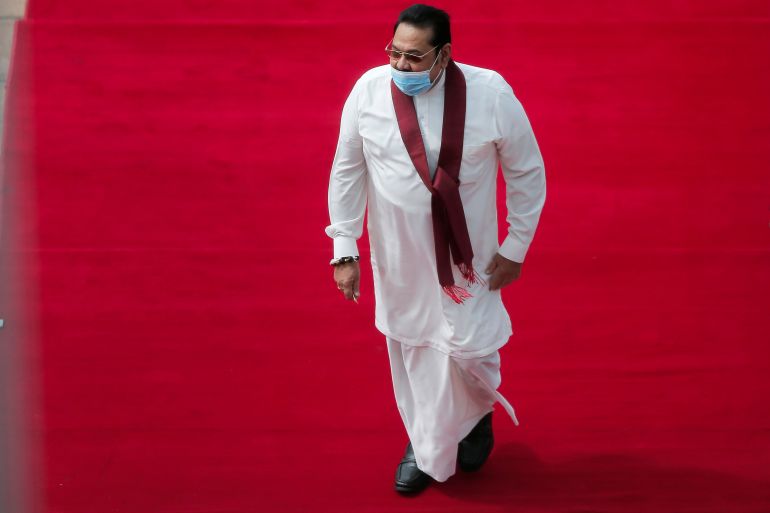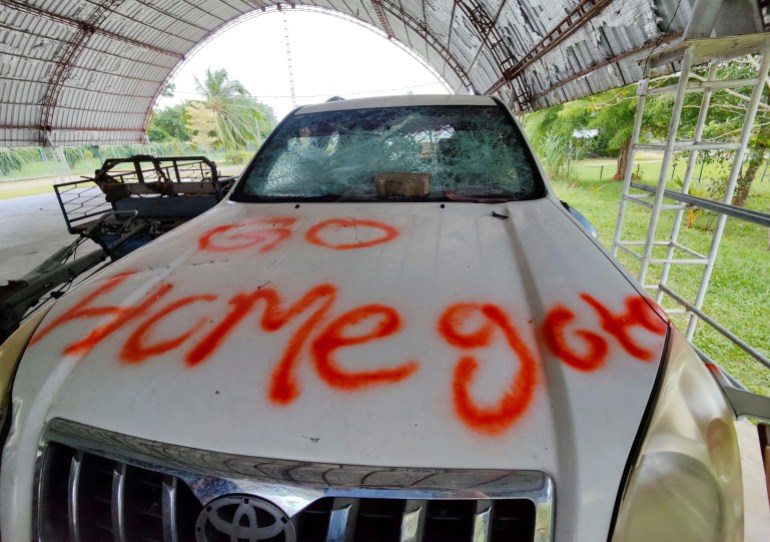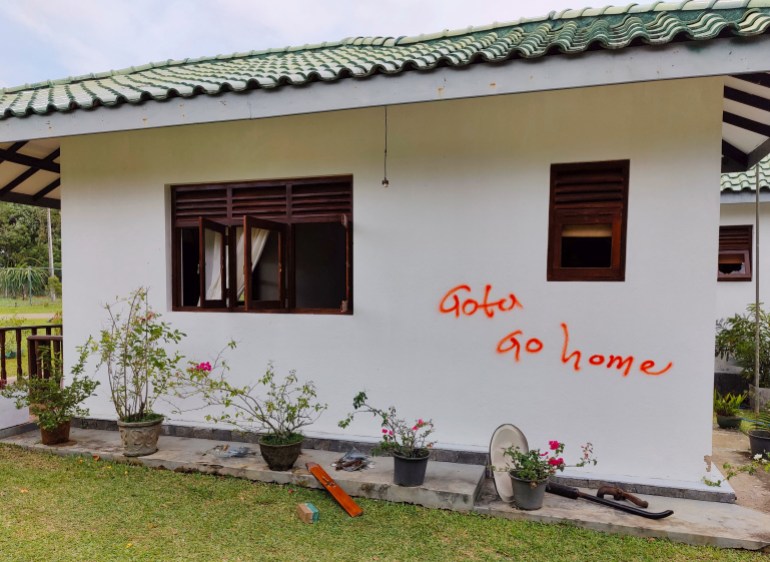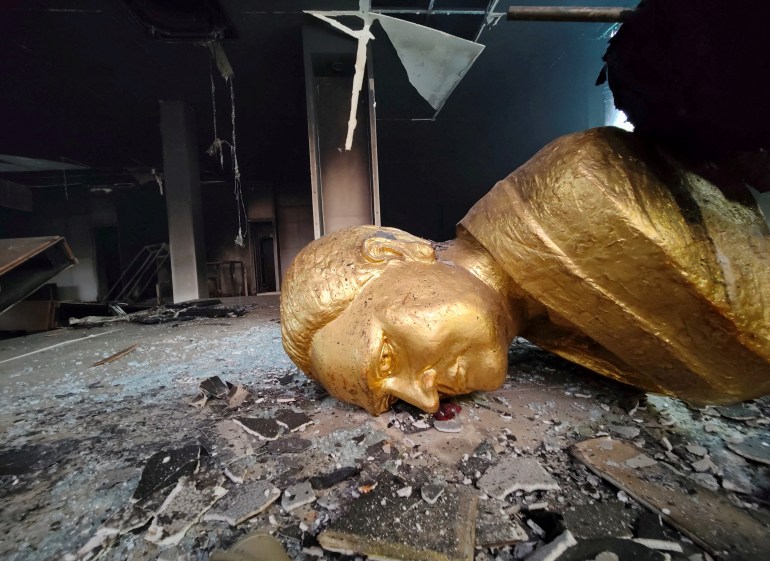Sri Lanka court bans ex-PM Rajapaksa, allies from leaving country
Mahinda Rajapaksa, his politician son Namal and 15 allies have been barred from leaving the island over violence against anti-government demonstrators.

A Sri Lankan court has banned former prime minister Mahinda Rajapaksa, his politician son Namal and 15 allies from leaving the country over violence against anti-government demonstrators.
The magistrate in the main city of Colombo on Thursday ordered police to investigate Monday’s mob attacks on peaceful protesters, which led to retaliations. Nine people died in the violence and cities saw widespread destruction.
Keep reading
list of 4 itemsSri Lankan president to appoint new PM, cabinet this week
Army evacuates former Sri Lankan PM from besieged residence
In Sri Lanka, a prime minister is gone. What next?
A petition to the court had also requested an arrest warrant for Rajapaksa and his associates, a court official told AFP news agency.
“But the magistrate turned it down because police anyway have powers to detain any suspect,” the official added.
Victims of Monday’s violence say Rajapaksa and key aides had bussed about 3,000 of their supporters into the capital and instigated them to attack peaceful protesters.
The loyalist mob poured out of his residence and assaulted anti-government demonstrators with sticks and clubs.
Buddhist monks and Catholic priests were among at least 225 people hospitalised after the attack.
Reprisals soon spread across the country, with dozens of homes of Rajapaksa loyalists set ablaze.
The premier resigned and had to be evacuated from his home by heavily armed troops.
The 76-year-old former leader is currently holed up at a naval facility in the east of the island nation, protected by the armed forces.
His former minister son Namal told AFP on Tuesday that the family had no intention of leaving the country.
Meanwhile, Mahinda’s younger brother, President Gotabaya Rajapaksa, is set to name a new prime minister on Thursday, with five-times ex-premier Ranil Wickremesinghe being a frontrunner.

Clan’s fight for survival
The reversal of fortunes for Mahinda Rajapaksa, the island nation’s most powerful politician for decades, has been giddying.
A scion of the Rajapaksa family beloved by many Sri Lankans for ending a protracted civil war, the leader is now a pariah. His beloved villa has been daubed in graffiti by protesters, and a museum dedicated to his father ransacked.
The turmoil is the worst to hit Sri Lanka since the war ended in 2009. The small southern town of Weeraketiya, where Mahinda liked to stay while visiting the family stronghold of Hambantota district, was not spared.
Shortly after the prime minister resigned on Monday, hundreds of people attacked a small group of police officers guarding his modest villa, vandalising an outhouse containing family memorabilia and sports trophies.
At the main house, graffiti reading “Gota Go Home” – a rallying cry of anti-government protests across the country – has been sprayed on the walls in red.

In Mahinda’s bedroom, windows were smashed but otherwise it looked untouched: television remotes were within reach of a comfortable armchair and a book on Sri Lankan cricketer Muttiah Muralitharan lay nearby.
According to interviews with half a dozen eyewitnesses and police officers, the villa was the first stop on a night of vandalism targeting Rajapaksa properties. No family members were at the residences when they were attacked.
“I have never seen anything like it,” a member of the family’s security detail said, adding that his wounded colleagues did not dare go to hospital to be treated as they feared doctors and nurses would turn against them.
Future in question
The worst financial crisis since Sri Lanka’s independence in 1948 has thrown the future of the Rajapaksas into doubt. A family of rural landowners based in Hambantotoa district, the fortunes of the Rajapaksas started flourishing when Mahinda became prime minister in 2004.
After he won the presidential election in 2005, Mahinda and Gotabaya, who defence secretary at the time, ended the civil war with Tamil separatists in the north and east of the country with a brutal government offensive that killed tens of thousands of people.
Mahinda was denied a third term as president in 2015, but the family came back to power in the 2019 presidential election, this time with Gotabaya at the helm.
Two of the nine deaths across the country in Monday’s violence occurred in Weeraketiya, after a crowd attacked the offices of a local lawmaker and his security detail fired on them in response, according to police.
Squads of soldiers and police, who have been given the authority to shoot to prevent looting and damage to public property and when lives are threatened, now guard the vandalised sites.
From the villa, the group proceeded to a museum dedicated to Gotabaya and Mahinda’s late father, parliamentarian D A Rajapaksa, where they demolished exhibits and torched the interior.
Little was left when Reuters news agency visited on Wednesday except a golden bust of their father face down on the blackened floor.
